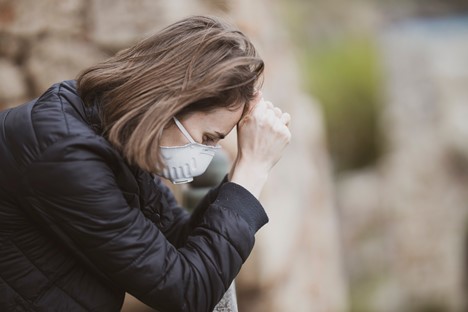Solving for Lonely
Wednesday, July 20, 2022
 Short version
Short version
- Loneliness is a bona fide health risk, not “just” a sad thing
- There are surprising reasons we might be lonely
- Solving for lonely requires understanding how we got so lonely in the first place
The Whole Story
Twelve years ago, I didn’t realize I was lonely until my partner gently let me know that the particular kind of deep dive conversations I kept trying to have with him was what girlfriends were for. I was a little embarrassed to need this to be pointed out (I admit; those truly were girlfriend conversations) and also a little embarrassed to be so friendless. I always had friends. Where had they all gone? Well, lost in transition is where. I’d moved to a different town and changed my career path. Now I needed to figure out how to go about making some new ones. I felt like a 45-year-old kindergartener.
What’s interesting is that 12 years ago my loneliness seemed like a socializing issue -- certainly not something having any bearing on my physical health. But so much is now being learned about the range of unexpected factors that have a whole lot to do with our health, like how
impaired vision can lead to social isolation which leads to lack of brain stimulation which can lead to dementia. Who would have that that loneliness could lead to dementia? And then, who would have thought that the fix for loneliness might be a vision test?
This Leading to That
Loneliness is now one of Northern Light’s 9 social determinants of health, social determinants being non-medical factors which nonetheless have a powerful influence over our health. Northern Light started including loneliness in a social determinants patient intake screening tool in May 2021 but then found the full use of the tool fairly low; many care teams were reluctant to include loneliness in the patient intake without a solid range of resources and/or interventions available. To address that, Northern Light landed a grant from Pfizer and the Institute for Healthcare Improvement -- one of just three in the country -- to develop a means of intervention and increase the usage of the screening tool. Emily Tolman, Northern Light’s Director of Health Equity and Access, along with Jessica Shaffer, Director of Community Health Partnerships, and Jaime Rogers, Director of Community Care & Behavioral Health, have been piloting the project with five Northern Light primary care offices. What they found? Loneliness and food insecurity top the chart.
“An eye-opening 21% of patients screened in the five study practices acknowledge being lonely and having food insecurity,” says Emily. “The food insecurity piece is not surprising and the interventions for that are more straightforward. But loneliness? This presents a wholly different sort of challenge for society.”
Connecting Resources
One tool aimed at addressing social determinants of health is
findhelp.org which connects local resources to need. It’s available nationally but Northern Light will roll out a
find help tool more deeply customized to our communities by September. This tool will be accessible to the general public with a special interface for providers. While loneliness is not specifically called out, if lack of transportation is influencing loneliness, then there is a service for that. If the inability to pay bills is a factor influencing a person’s loneliness, then there is a service for that, and so on and so forth.
These are important and pragmatic solutions with many aspects of loneliness being pragmatically solveable. But loneliness is also a social concern of a different stripe, potentially requiring a whole new level of creative thinking.
Getting Creative
Some countries and communities are developing phone conversation outreach systems. Britain is experimenting with designated “sit down and chat” park benches. Dr. Jeremy Nobel, a faculty member at Harvard School of Public Health and founder of
Project UnLonely is doing research on the use of creativity. Dr. Stephanie Cacioppo, an assistant professor of psychiatry and behavioral neurosciences at the University of Chicago sees the solution from a different angle, saying that one of the best ways to help someone who is lonely is not to
give them help but
ask them for help, engaging them in a way that makes them feel needed and boosts their sense of self-worth. Northern Light is forging ahead in the exploration of potential interventions and programs to assist with loneliness.
We all may find ourselves lonely at some point in time. Life is full of transitions, circumstances and times when our sense of vital connection gets diminished. Here at the intersection of loneliness and health, the solutions may take us in all kinds of directions, from eye exams to Ubers, park benches to mandalas. But one thing is solid: loneliness is serious.
With July being Social Awareness Month, would you help out and give someone an encouraging smile to show them they are not invisible?
😊
E
Sources: bbc.com, New York Times, helpfinder.org